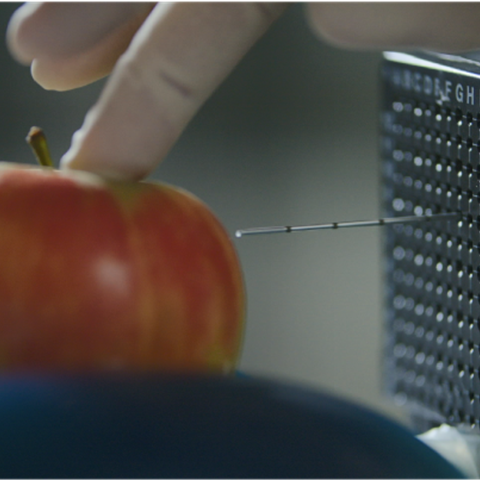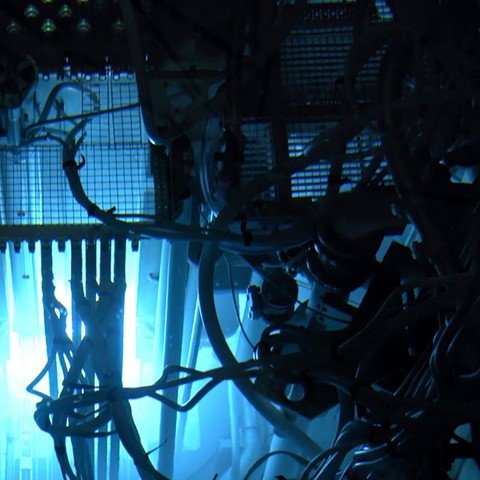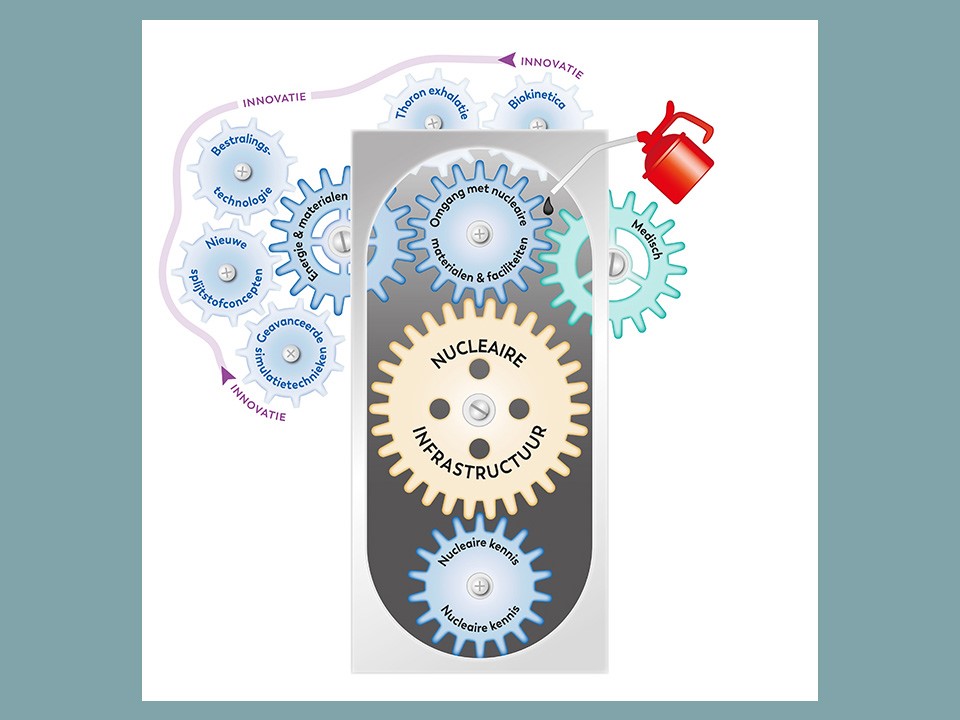Health and Energy
As developers of nuclear solutions, we want to make a positive contribution to people’s lives. Which is why we do research in both nuclear medicine and nuclear energy. We use our knowledge and infrastructure to deliver solutions.
Below you can find more information about our medical research, energy research and the nuclear gearbox!

Medical Research
Why do medical research?
NRG produces radioactive substances - medical isotopes – which are used as drugs in therapeutic and diagnostic tests and procedures.
NRG makes medical isotopes by irradiating certain materials in the reactor. These medical isotopes are first made into an intermediate product (radiochemical), which is then used to make the medicinal product (radiopharmaceutical). In hospitals, specialists in nuclear medicine and other health professionals work on creating new radiopharmaceutical drugs.
In hospitals, specialists in nuclear medicine and other health professionals work on creating new radiopharmaceutical drugs. For this, clinical trials are performed to test a drug’s effectiveness. NRG develops the production and processing necessary to ensure the supply of such medicinal substances in the future. A new lab (FIELD-LAB) is currently being built for this purpose. NRG is helping to accelerate the development of new radiopharmaceutical products by preparing small amounts of substances for clinical trials in the Field-Lab, in partnership with the university medical centres and industry.
Energy Research
Why do energy research?
For decades, NRG has been carrying out research into nuclear technology and applications of nuclear energy. Nuclear energy can make an important contribution to the stable provision of carbon-neutral energy. NRG studies the safe and reliable production of nuclear energy in existing nuclear reactors and develops new and innovative concepts like the thorium reactor. With these new concepts, we want to make nuclear power more sustainable through the more efficient use of resource material and by reducing the amount of radioactive waste. Important research areas include the recycling and storage of radioactive waste and improving the safety of nuclear technology applications for humans and the environment, for example by developing new technologies in the area of radiation protection.
Would you like to learn more about this international research, sponsored by the Dutch government?

The nuclear gearbox
A gearbox of nuclear infrastructure and knowledge
The lowest gear of this machine, ‘nuclear science’, was built and set in motion in the middle of the previous century. In 1946, a foundation for physics research was set up in the Netherlands called ‘Stichting Fundamenteel Onderzoek der Materie’, the predecessor of the NWO (Netherlands Organisation for Scientific Research). The middle gear, ‘nuclear infrastructure’, got underway in the 1950s and 60s because research needs a physical infrastructure to achieve results. Essential at this stage was the construction of the Low and High Flux Reactors, the Higher Education Reactor, plus the required labs for conducting pre- and post-radiation experiments. When these two gears started running in the 1960s, the highest gear, ‘nuclear radiation and facilities’ (hands-on experience), could start turning. The Dutch government propelled the functioning of this machine by granting subsidies, promoting its work and providing it with social frameworks. This investment meant that in time further gears could be added. We could not have known in advance what some of these gears would be. We only found out when the time was right. We are thinking here of ultracentrifuge technology and medical isotopes, now one of the most important gears of the machinery. The whole machine must be regularly lubricated and maintained. And sometimes you need to replace something. Like the replacement of the HFR by PALLAS. But you cannot let a single gear drop out because then the gearbox will no longer function. On the other hand, if we manage to keep this gearbox in top condition, there are countless possibilities for expansion.

Our research in a nutshell
Operational expertise and know-how. From concept to medicine.
Practical knowledge for safe and climate-neutral nuclear energy
Our unique nuclear infrastructure supports the development of medicinal products
Independent knowledge about future nuclear energy (thorium)
